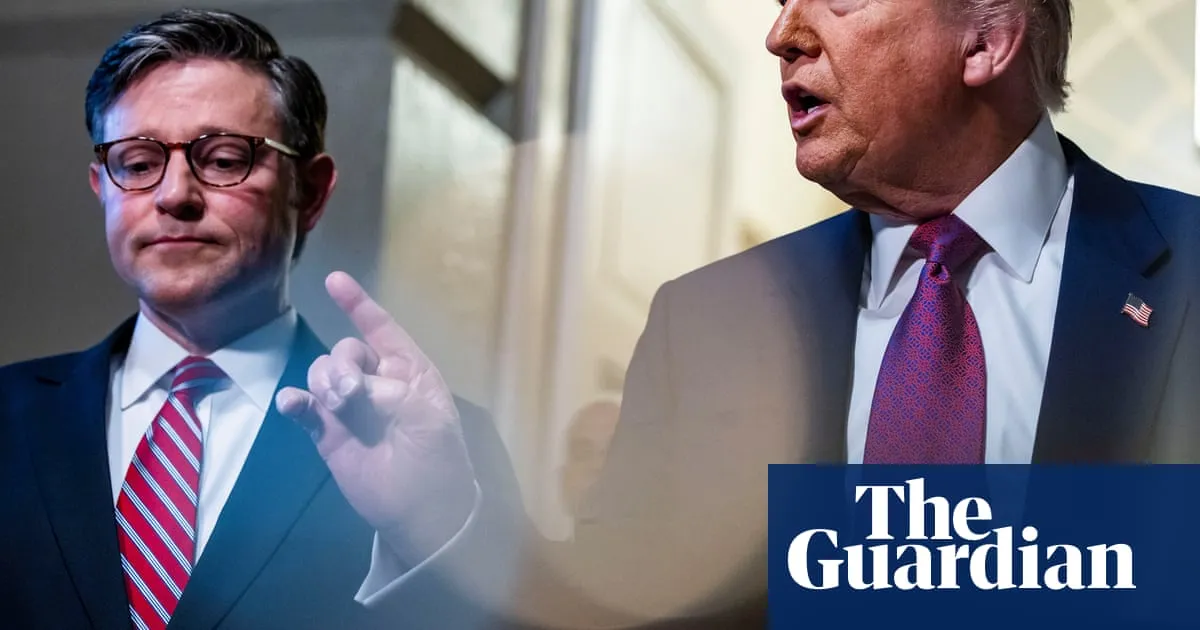
Donald Trump has received a stern warning from fiscal conservatives within his own party in the US Senate. These Republican senators are urging the president to "get serious" about cutting government spending and tackling the national debt. Failure to do so could result in them blocking the passage of his key tax-cutting legislation, often referred to as the “big beautiful bill.”
On Sunday, Senator Ron Johnson of Wisconsin, a prominent fiscal hardliner linked to the Tea Party movement, emphasized the urgency of the situation. During an interview on CNN’s State of the Union, he stated, “I think we have enough to stop the process until the president gets serious about spending reduction and reducing the deficit.” This statement underscores the growing discontent among some Republican senators regarding the current spending trajectory.
Trump has invested significant political capital in this massive legislative package, which aims to extend the 2017 tax cuts from his first term. In exchange for about $1 trillion in benefits cuts—including reductions to Medicaid and the Supplemental Nutrition Assistance Program (SNAP)—the bill seeks to maintain the tax cuts that many Republicans favor. However, it narrowly passed the US House by just one vote on Thursday, and now faces an uncertain future in the Senate.
Sunday’s warnings from influential senators, frustrated by the lack of attention to the budget deficit, cast a shadow over Trump’s legislative agenda. With the Senate majority leader, John Thune, able to lose only three votes from his party’s 53 senators, there is little room for error. Thune has indicated that modifications to the bill may be necessary to appease dissenting Republicans. This situation complicates matters for House Speaker Mike Johnson, as any amendments made in the Senate would require approval from the House under the budget reconciliation process, which allows for expedited passage through Congress.
Speaker Johnson has made a renewed appeal to his Senate colleagues, urging them to minimize changes to the bill. During an appearance on CBS News’s Face the Nation, he stated, “to make as few modifications as possible, remembering that I have a very delicate balance on our very diverse Republican caucus over in the House.” However, it appears Senate budget hawks are unlikely to compromise easily.
Senator Ron Johnson expressed grave concerns regarding the financial implications of the bill, estimating it could add up to $4 trillion to the federal deficit. This estimate aligns with recent analyses from the Congressional Budget Office (CBO). Johnson articulated a rare moment of criticism towards Trump, stating, “I’m extremely worried about that. We are mortgaging our children’s future. It’s wrong. It’s immoral. It has to stop.”
Another influential voice in the Senate, Rand Paul from Kentucky, has also voiced his concerns about the deficit. He criticized the spending cuts outlined in the big beautiful bill, calling them “wimpy and anemic” and warning that they would likely “explode the debt.” These sentiments reflect a broader unease among Republican senators regarding the potential ramifications of the proposed cuts.
Furthermore, several Republican senators are increasingly worried about the projected loss of health coverage for millions of Americans due to cuts to Medicaid. The CBO estimates that nearly 8 million individuals could lose access to this vital benefit. In an attempt to downplay these concerns, Speaker Johnson argued that a significant portion of those affected are “illegal aliens receiving benefits” or able-bodied individuals who are “gaming the system.”
However, a non-partisan analysis by FactCheck.org has disputed Johnson’s claims regarding undocumented immigrants' access to Medicaid. The report clarified that individuals without immigration papers are generally not eligible for the federal program, except for emergency medical treatment. Furthermore, while over one million undocumented immigrants risk losing state-provided health benefits, this situation is separate from Medicaid cuts.
The potential reduction in Medicaid poses a significant political challenge for Trump, particularly given his campaign promises to protect essential safety nets like Medicaid, Medicare, and social security. His loyal supporters within the MAGA (Make America Great Again) movement have expressed caution regarding these cuts. Steve Bannon, former chief White House strategist, recently advised his followers on the War Room podcast to exercise caution, noting, “You got to be careful, because a lot of MAGA is on Medicaid.”
As the legislative battle unfolds, the pressure mounts on Trump to demonstrate a commitment to fiscal responsibility and engage with both Senate fiscal hawks and House members to ensure the passage of his signature tax legislation.